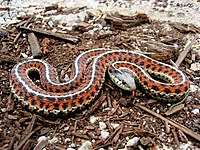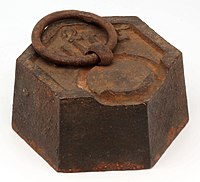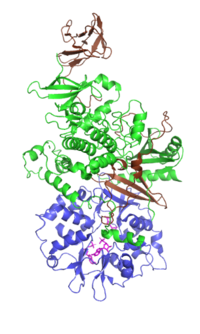
Use it or lose it? Effects of age, experience, and disuse on crawling
Sign Up to like & getrecommendations! Published in 2019 at "Developmental Psychobiology"
DOI: 10.1002/dev.21802
Abstract: What happens to early acquired but later abandoned motor skills? To investigate effects of disuse on early-developing motor skills, we examined crawling in two groups of habitual crawlers (34 6-12-month-old infants and five adults with… read more here.
Keywords: gait patterns; lose effects; habitual crawlers; use lose ... See more keywords

Mitophagy reporter mouse analysis reveals increased mitophagy activity in disuse‐induced muscle atrophy
Sign Up to like & getrecommendations! Published in 2021 at "Journal of Cellular Physiology"
DOI: 10.1002/jcp.30404
Abstract: Muscle disuse induces atrophy through increased reactive oxygen species (ROS) released from damaged mitochondria. Mitophagy, the autophagic degradation of mitochondria, is associated with increased ROS production. However, the mitophagy activity status during disuse‐induced muscle atrophy… read more here.
Keywords: mitophagy activity; muscle; disuse; atrophy ... See more keywords

Bone gain following loading is site-specifically enhanced by prior and concurrent disuse in aged male mice
Sign Up to like & getrecommendations! Published in 2020 at "Bone"
DOI: 10.1016/j.bone.2020.115255
Abstract: The primary aim of osteoanabolic therapies is to strategically increase bone mass in skeletal regions likely to experience high strains. In the young healthy skeleton, this is primarily achieved by bone's adaptation to loading. This… read more here.
Keywords: bone; prior concurrent; mice; disuse ... See more keywords

Rodent model of disuse-induced bone loss by hind limb injection with botulinum toxin A
Sign Up to like & getrecommendations! Published in 2020 at "MethodsX"
DOI: 10.1016/j.mex.2020.101079
Abstract: Bone loss materializes rapidly after immobilization or mechanical unloading. Hind limb injection with botulinum toxin A (BTX) is a highly reproducible animal model for disuse-induced bone loss. Here we describe an easy-to-use and enhanced version… read more here.
Keywords: hind limb; muscle; hind; disuse ... See more keywords

Impaired proteostatic mechanisms other than protein synthesis limit aged skeletal muscle recovery after disuse atrophy
Sign Up to like & getrecommendations! Published in 2023 at "Physiology"
DOI: 10.1152/physiol.2023.38.s1.5729708
Abstract: Older individuals undergo more frequent hospitalizations and periods of bedrest compared to younger persons, causing rapid loss of muscle mass and strength. We and others have shown that old muscle fails to completely regrow following… read more here.
Keywords: muscle; physiology; old muscle; disuse ... See more keywords

The time course of neuromuscular impairment during short‐term disuse in young women
Sign Up to like & getrecommendations! Published in 2021 at "Physiological Reports"
DOI: 10.14814/phy2.14677
Abstract: Skeletal muscle disuse results in rapid functional declines. Previous studies have typically been at least 1 week in duration and focused on the responsiveness of men. Herein, we report the timeline of initial impairments in… read more here.
Keywords: strength; time course; disuse; term ... See more keywords

The impact of hindlimb disuse on sepsis‐induced myopathy in mice
Sign Up to like & getrecommendations! Published in 2021 at "Physiological Reports"
DOI: 10.14814/phy2.14979
Abstract: Sepsis induces a myopathy characterized by loss of muscle mass and weakness. Septic patients undergo prolonged periods of limb muscle disuse due to bed rest. The contribution of limb muscle disuse to the myopathy phenotype… read more here.
Keywords: sepsis; muscle; clp hls; disuse ... See more keywords

Hindlimb Immobilization Increases IL-1β and Cdkn2a Expression in Skeletal Muscle Fibro-Adipogenic Progenitor Cells: A Link Between Senescence and Muscle Disuse Atrophy
Sign Up to like & getrecommendations! Published in 2021 at "Frontiers in Cell and Developmental Biology"
DOI: 10.3389/fcell.2021.790437
Abstract: Loss of muscle mass and strength contributes to decreased independence and an increased risk for morbidity and mortality. A better understanding of the cellular and molecular mechanisms underlying muscle atrophy therefore has significant clinical and… read more here.
Keywords: expression; muscle; immobilization; disuse ... See more keywords

AMP-Activated Protein Kinase as a Key Trigger for the Disuse-Induced Skeletal Muscle Remodeling
Sign Up to like & getrecommendations! Published in 2018 at "International Journal of Molecular Sciences"
DOI: 10.3390/ijms19113558
Abstract: Molecular mechanisms that trigger disuse-induced postural muscle atrophy as well as myosin phenotype transformations are poorly studied. This review will summarize the impact of 5′ adenosine monophosphate -activated protein kinase (AMPK) activity on mammalian target… read more here.
Keywords: trigger disuse; muscle; disuse induced; activated protein ... See more keywords

The Role of GSK-3β in the Regulation of Protein Turnover, Myosin Phenotype, and Oxidative Capacity in Skeletal Muscle under Disuse Conditions
Sign Up to like & getrecommendations! Published in 2021 at "International Journal of Molecular Sciences"
DOI: 10.3390/ijms22105081
Abstract: Skeletal muscles, being one of the most abundant tissues in the body, are involved in many vital processes, such as locomotion, posture maintenance, respiration, glucose homeostasis, etc. Hence, the maintenance of skeletal muscle mass is… read more here.
Keywords: skeletal muscle; gsk regulation; oxidative capacity; muscle ... See more keywords

The Role of Glycogen Synthase Kinase-3 in the Regulation of Ribosome Biogenesis in Rat Soleus Muscle under Disuse Conditions
Sign Up to like & getrecommendations! Published in 2022 at "International Journal of Molecular Sciences"
DOI: 10.3390/ijms23052751
Abstract: It is well-established that prolonged exposure to real or simulated microgravity/disuse conditions results in a significant reduction in the rate of muscle protein synthesis (PS) and loss of muscle mass. Muscle protein synthesis is largely… read more here.
Keywords: ribosome biogenesis; soleus muscle; muscle; rat soleus ... See more keywords